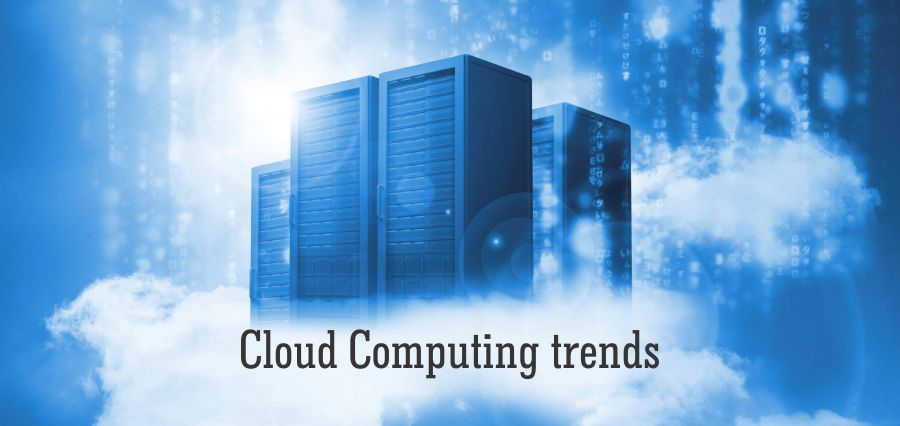The current advancement in social media, mobile devices and cloud computing have pushed traditional networks to their limits. Computing and storage have benefited immensely from the innovations in virtualization and automation. Business and IT executives are no longer looking at Cloud solely as a tool, as cloud computing is playing a major role in reshaping how companies conduct business.
Cloud computing has facilitated Big Data with a way to store and retrieve an enormous amount of information. The scenario has evolved from personal cloud storage to entire organizations shifting all of their data to the cloud. Even though several organizations are in the process of migrating to the cloud to achieve scalability, cost-efficiency and enhanced application performance, some large organizations are still hesitant to transfer their information to the cloud mainly due to security concerns.
Even with such concerns, the adoption of cloud services continues to escalate due to the improved usage of cloud-based services, including mobility, increased efficiency, cost-effectiveness, streamlined collaboration, and speed of connectivity.
Following are some of the ways in which Cloud Computing is reshaping the Networking Industry:
Internet of Things (IoT) and Cloud
IoT is expected to remain strong in the coming years, but the continued development of cloud computing and real-time data analytics will also witness the rise of Internet of Everything (IoE). IoE relies on machine-to-machine communications, data processes, and human interaction with everything in their environment. Cloud computing plays a significant role as the IoE develops into a complex system aiming to simplify all the interactions.
Furthermore, IoE will also provide businesses with more meaningful insights into how consumers relate to their products, services, and customer care units.
Increasing Demand of Containers
Cloud containers as a service are becoming popular as it can deliver a better infrastructure security. Currently, there is a great upsurge in the use of containers in the cloud computing sector. A cloud-based container system acts as an alternative to virtual machines and allows apps to be deployed in a quick, reliable, consistent and straightforward manner.
This increase in the demand for containers would make it possible for more real-world problems to be solved efficiently and more securely. Businesses that use big data can use this expanded storage space to store data, conduct analytics and derive valuable insights into areas like financial investments, human systems, and customer behavior. Meanwhile, small business can benefit from the fact that increased storage could mean deeply customized and cheaper storage options.
Edge Computing on the Rise
Due to the increasing use of internet-connected devices, data processing at the edge of the network, to optimize cloud computing, will be on rise. Edge computing is necessary because it will be required to run the real-time services as it streamlines the flow of traffic from IoT devices and provides real-time data analysis.
Security Advancement in Cloud
The cloud security concerns that make many enterprises reluctant to adopt the technology are being currently addressed. Cloud providers are offering more security services to detect flaws before they turn into the next major breach. The key to implement such security is to facilitate it in layers, so that even if one is breached, there is another layer to reinforce it. This approach delivers a key benefit to utilizing public cloud providers.
Hybrid Architecture
The hybrid cloud model takes the form of any combination of public, private and on-premise deployments. They either extend the existing physical infrastructure or the infrastructure of a public cloud with a private one. The increase of hybrid models in the coming years puts an even greater emphasis on the data involved and the architecture required for accessing data.
Although a hybrid approach gives the best of both private and public clouds, it is not devoid of challenges especially in integration. Cloud providers have already started working on addressing the challenges associated with hybrid cloud and will likely meet the demands in the coming years.
Growth in Cloud Services
With cloud computing on the rise, it’s only natural that cloud services and solutions will also grow. Software-as-a-service opened a flexible and financially attractive door for businesses and consumers to try early cloud services. The immense evolution of infrastructure and platform as a service has extended the number of cloud solutions available in the public and private sectors.
The coming years will witness an improvement in the adoption of enterprise cloud services, customer cloud services, cloud-based file sharing services, collaboration services and social media services.
As the use of cloud continues to mature and become more strategic, the market in cloud computing will change. This change will impact every aspect of cloud computing.
In the near future we will see an increased maturity and the expansion of cloud computing. The rise of cloud-native applications designed for multi-cloud environments also includes simple open integrations that will make workloads portable and begin to change the way organizations value IT within business.

Insights Success stands as the epitome of trust and authority. It has earned its reputation as the foremost source of business intelligence, providing readers with a gateway to the pulse of Bharat’s advancing business landscape.
Quick Links
Enquiry
info@insightssuccess.in
for more information on advertising opportunities with Insights Success magazine.
8793630422 / 24
Reach out to Us
Insights Success Media and Technology Pvt. Ltd.
512, Brand Square,
Kunal Icon Rd, Pimple Saudagar,
Pune, Maharashtra 411027

